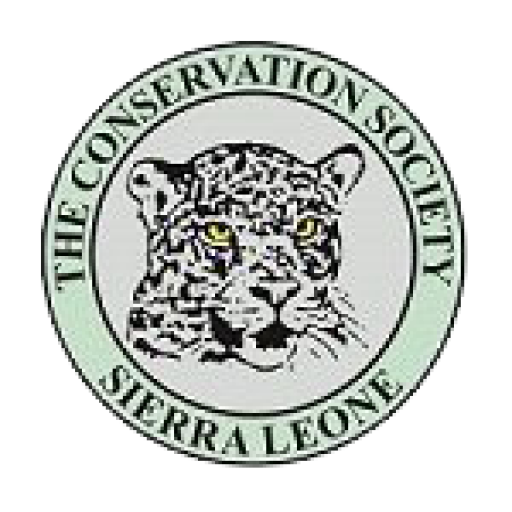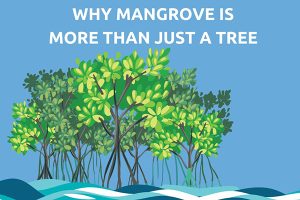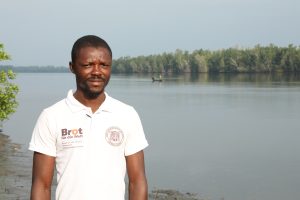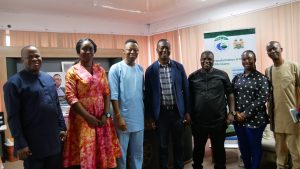Climate change is the greatest challenge of our time and future generations, and poses a threat to ecosystems worldwide. Its consequences are devastating for human populations and ecosystems everywhere, but especially in coastal communities. Yawri Bay in Sierra Leone is such a coastal region. The people in these communities are the ones least responsible for climate change but are among those most affected by it. One of those communities is Plantain Island. The island is a disturbing example of the challenges faced by coastal inhabitants in the course of climate change.
Yawri Bay is located on the Atlantic Coast of Sierra Leone, just south of the peninsula, on which the country`s capital is located. Shenge, a significant fishing town in Moyamba district, south of the country, is the headquarter town of Kagoboro chiefdom. A few kilometres off the coast of Shenge is an island, which is known for its rich history of fishing and being an important slave trading post in the 17th and 18th centuries: Plantain Island. Compared to other islands along the coast, it is a rather small island. Because of the lack of data on the region the exact size and number of inhabitants can only be assumed.
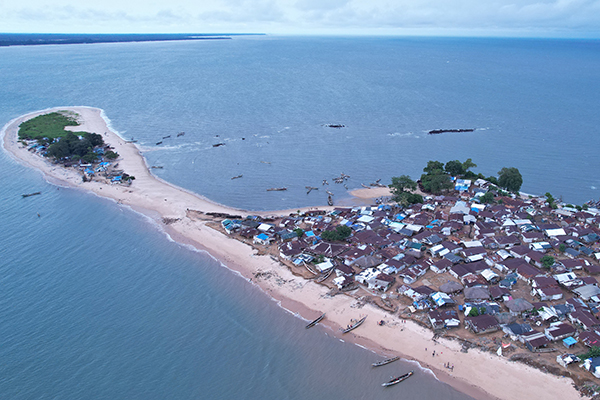
As already mentioned, the small island is in great danger. According to the community members, thousands of square meters of the island have already been lost due to coastal erosion and rising sea levels over the last decades (thousands of square meters might not exactly mean thousand of square meters but a very huge area). The island used to be a tranquil and thriving community with its inhabitants relying on fishing, agriculture, wood production and small-scale trade. The inhabitants of the island were able to build permanent structures and had a reliable income. Fast forward to 2024, the reality is frightening: Due to climate change, people already started to migrate to communities on land, and the houses that once characterised the landscape, have now been washed away. Newly built structures are not meant to be permanent, as the community members are aware of the fate of their island.
When asked about his dreams, one of the inhabitants of the island answered: “I just want to stay here and have a family on this island. My family always lived here, and I want my kids and grandkids to live here.” What may seem to be a reasonable dream will not become reality. There is no available scientific data, but it is estimated that the island will disappear into the sea in the next 25 to 30 years. The people living in the community are not able to undertake any kind of agricultural activities anymore, as there is simply not enough space on the island today and temperatures are rising rapidly. They are now solely relying on artisanal fishing.
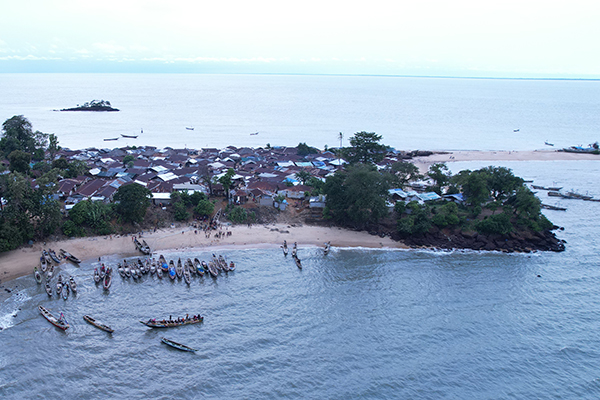
Plantain Island is not the only community facing those challenges in Sierra Leone. The entire coast is in danger. That is why the Conservation Society of Sierra Leone (CSSL) is very active in their efforts to fight climate change in the West African country. One of the project sites of CSSL is the Yawri Bay. The “Yawri Bay-Team” of CSSL is working closely with a handful of communities to provide alternative livelihoods and preserve the mangroves in the region. The environmental organisation is providing resources, expertise, and advocacy to empower the people and communities of Yawri Bay and to protect its valuable ecosystems. One of the most important mitigation measures is to protect and restore the mangroves around the delta, as they provide immense protection against coastal erosion, preserve ecosystems, and store close to four times the amount of carbon compared to other rain forest trees. Unfortunately, this will not save the island from sinking – but it will bring great support to other communities along the coast. To prevent the disaster that is going to happen to the island off the coast of Shenge, such mitigation measures needed to have taken place decades ago…
In conclusion, the case of Plaintain Island showcases the consequences of climate change and human activity and actions. Furthermore, it demonstrates the asymmetries of power between the global north and the global south: the people of Plaintain Island are not responsible for their homes being destroyed, and yet, they are the ones having to leave everything behind. It is a reminder that there is an urgent need to address these challenges and protect coastal communities worldwide. The ecosystems, the people and their history are worth to be protected – and everyone has the right to at least have a chance to achieve their dreams.
by Luc Ben Bessel
Learn more about our work at the Yawri Bay:
- PAPBIO: Management of mangrove forests from Senegal to Benin
- CEPF: Conserving the Yawri Bay Ecosystem in Sierra Leone’s coastal corridor
- BNCFF: Inspiring youths (with gender inclusiveness) for community-based mangrove restoration and creation of sustainable livelihood options in the Yawri Bay Landscape
